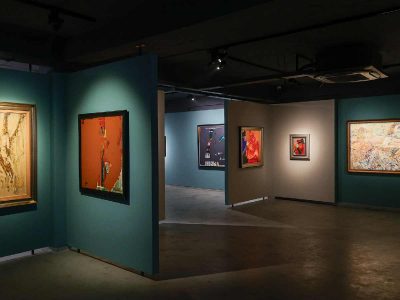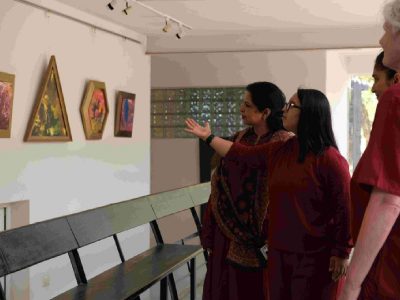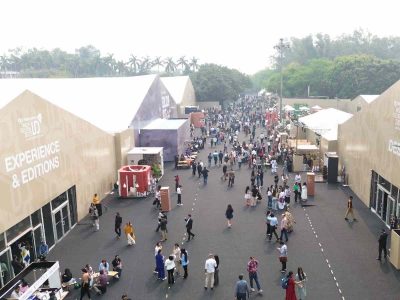Art Magnum and Gallery Time and Space have joined hands to present A Moment in Modernity, a landmark solo exhibition showcasing the works of acclaimed Jharkhand-based artist Haren Thakur. Curated by eminent art historian Dr Alka Pande, the exhibition opens to the public from April 16 to 25, at the Visual Arts Gallery, India Habitat Centre. The exhibition will further travel to Art Magnum, New Delhi (May 4 – June 30) and Jehangir Art Gallery, Mumbai (August 5 – 11).
Haren Thakur, a modernist with a deep connection to tribal traditions, has carved a niche for himself by blending the visual sensibilities of India’s indigenous cultures with contemporary aesthetic expression. His works—infused with themes of nature, spirituality, and social harmony—reflect a lifelong engagement with the tribal communities and landscape of Jharkhand.
“He attributes qualities such as love, empathy and camaraderie to trees, seeing them as silent witnesses to human existence… rejecting polished artificial refinement in favour of organic movement and energy,” said curator Dr Alka Pande, highlighting the artist’s commitment to authenticity and genuine expression.
An alumnus of Kala Bhavana, Visva-Bharati University, Santiniketan, Thakur studied under Indian art legends like Ramkinkar Baij, Benode Behari Mukherjee, and Somnath Hore. These influences laid the foundation for a visual language deeply rooted in Eastern modernism and humanist traditions. Santiniketan’s emphasis on nature, rural life, and indigenous practices continues to inform his work.
Thakur established his studio in Jharkhand in 1974, immersing himself in the state’s tribal cultures. Over the decades, he has evolved a distinctly Indian modernist vocabulary—melding Munda and Birhor rock art, Warli patterns, cubist abstraction, and Bengali cultural motifs.
“Haren Thakur touches upon the primal essence of life in the most warm and humane manner. His art reveals the holistic unity of Man and Nature,” noted Renu George, Director of Gallery Time & Space.
“His works reminisce about the time of the Indian Renaissance… a powerful language which is original and unique,” said Saurabh Singhvi, Director of Art Magnum.





